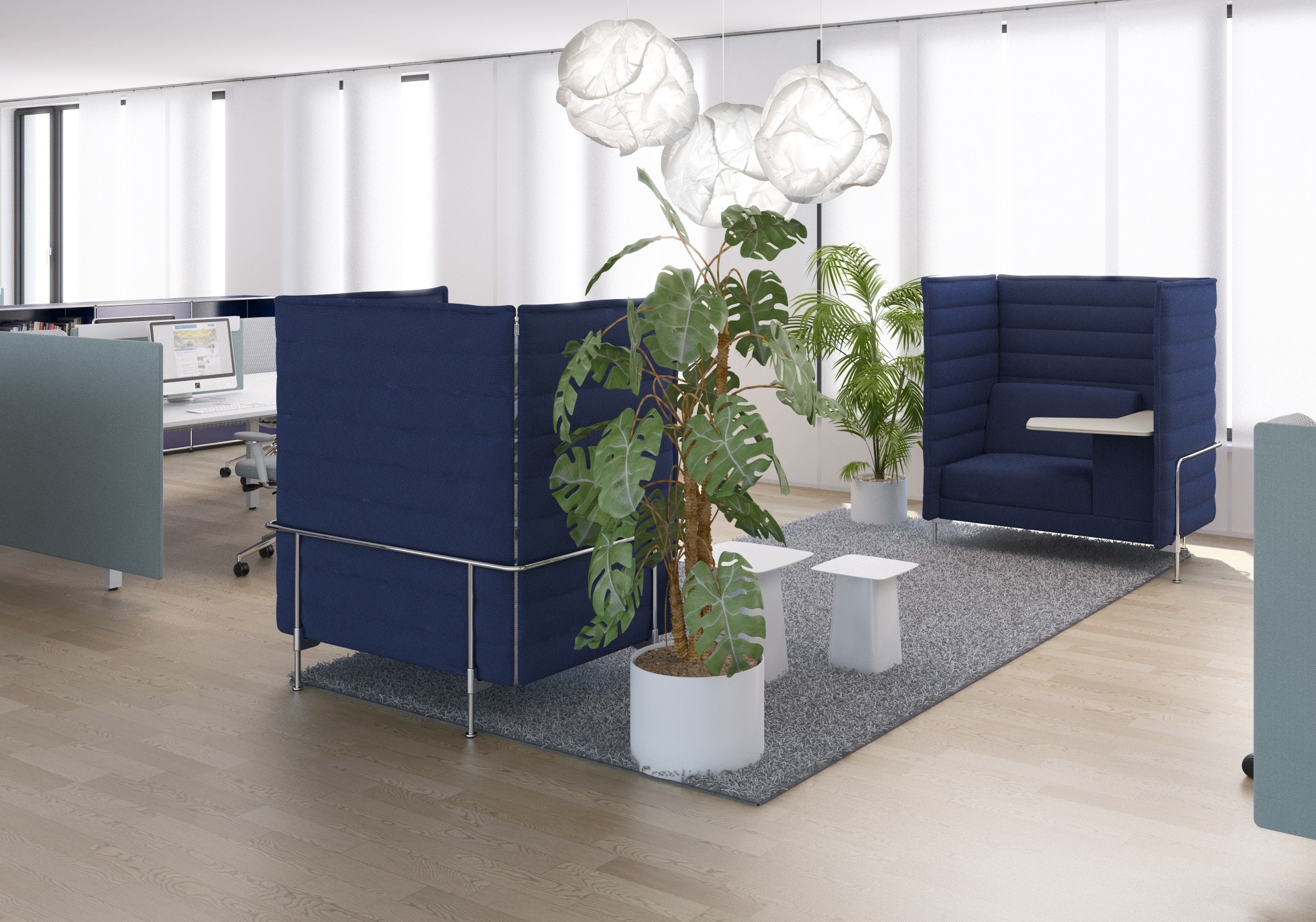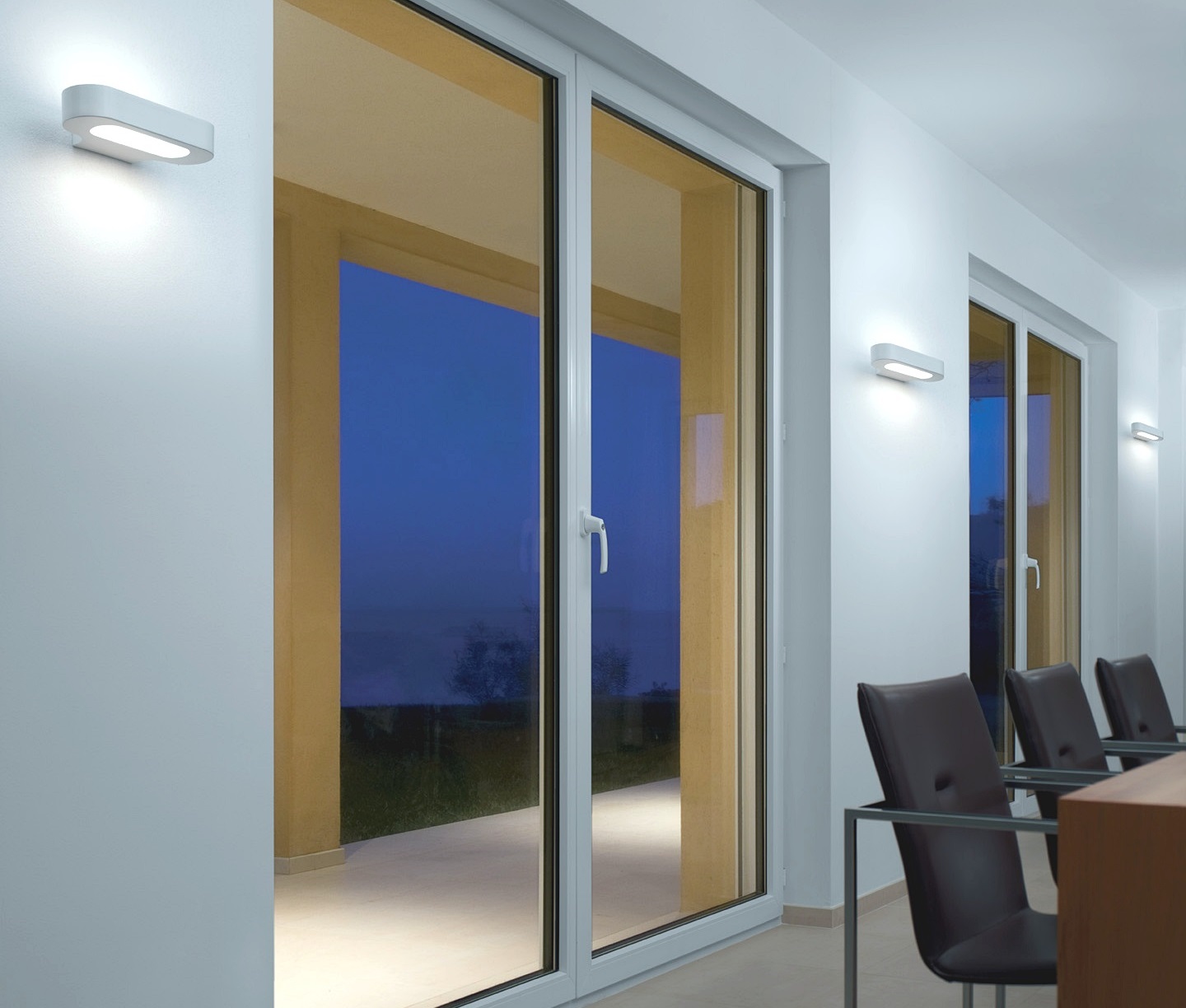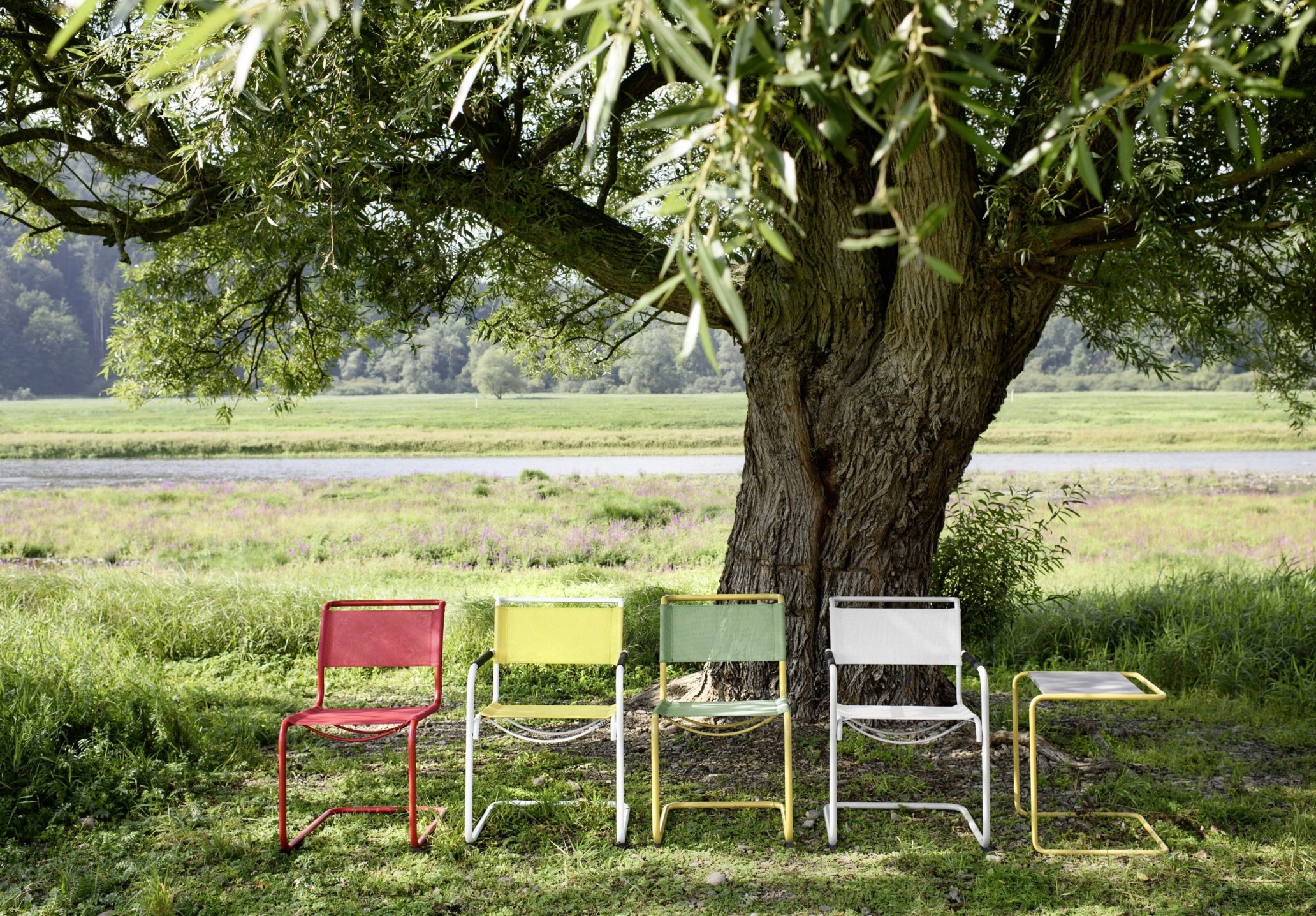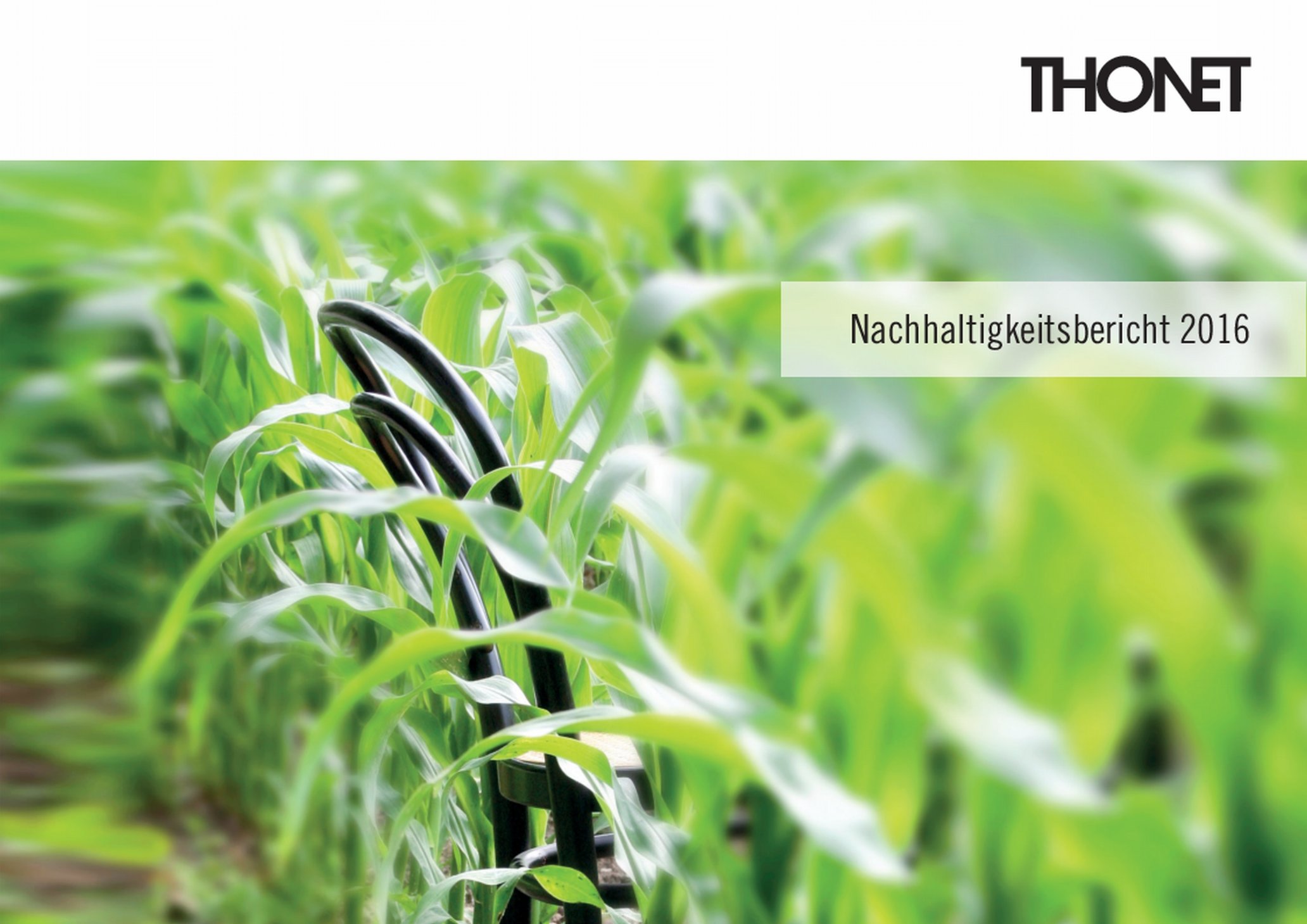7 STEPS TO A SUSTAINABLE OFFICE
Simple Steps to a More Sustainable Office
Sustainability is imperative in the modern working world. Businesses should ask themselves if their processes conform to contemporary environmental requirements. Where not, small, uncomplicated measures can often be very successful and should not be underestimated. Our tips will help you make your office greener!
1. Reducing Energy Usage
Natural ventilation and shutters can be employed to regulate the temperature in the office in an environmentally friendly fashion. If it gets too hot, fans are a greener alternative to air conditioning. In winter, you can reduce heating costs by reducing the room temperature: 1° C less saves up to 10 % of the heating costs and contributes to your environmentally friendly office! The standby mode of devices should be avoided and chargers should be removed from the socket when not in use. Helpful here are socket strips with a central switch. In rooms that are little used, such as in the hall, in the toilets or in the storage room, motion sensors can be installed, so there is no unnecessary lighting. The use of economical LED bulbs is also a worthwhile investment. LEDs are preferable to CFLs, as the latter contain highly toxic mercury and can be detrimental to health and the environment.
2. Water Efficiency
By installing water-saving rinsing solutions, significant amounts of water can be saved; equally through the use of so-called dual flush or water-saving devices in the cistern. When purchasing new equipment such as a coffee machine or dishwasher, attention should always be paid to low water consumption or high water efficiency. Where necessary, have dripping taps repaired as soon as possible and ensure sustainability in the office by preventing unnecessary water consumption.
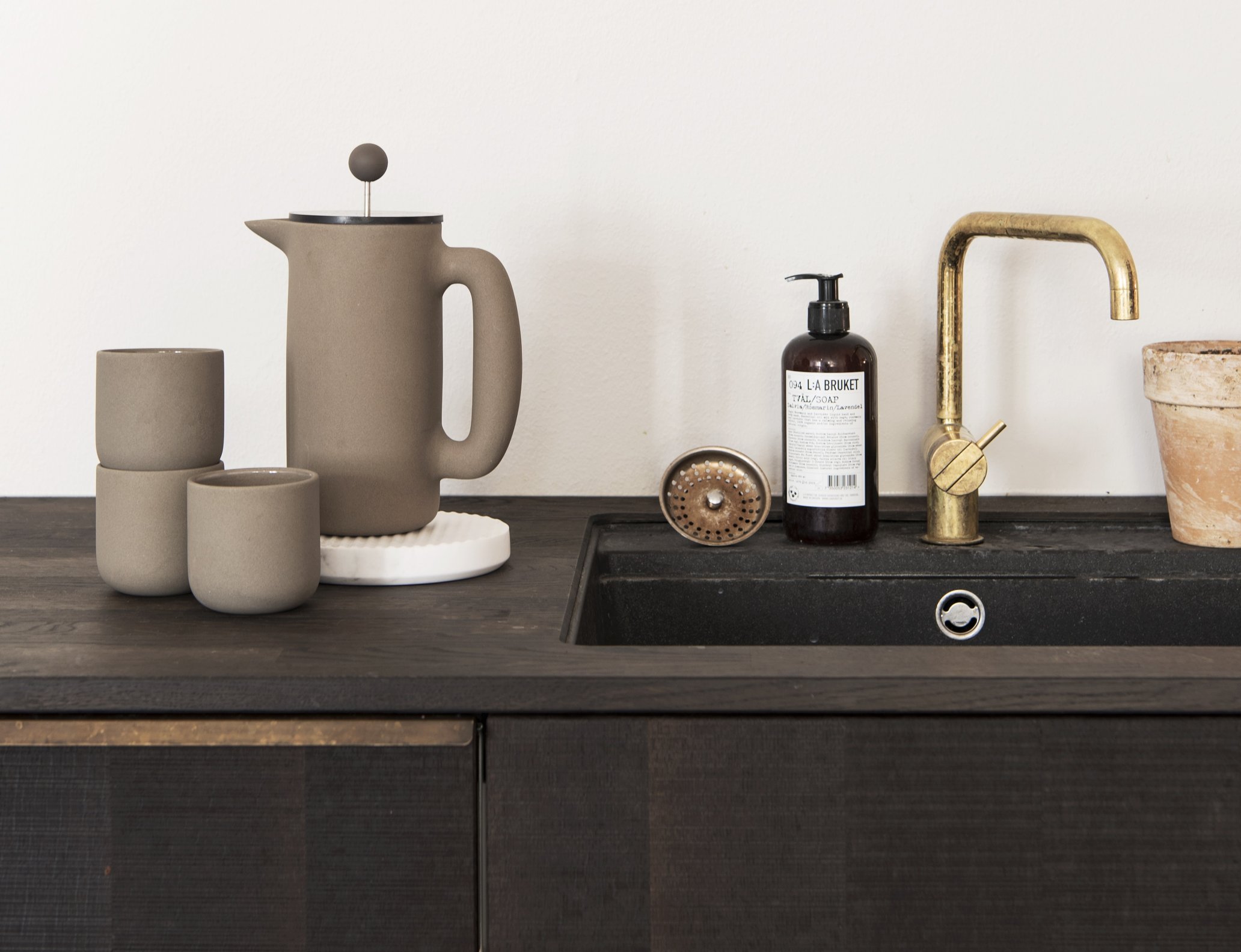
3. Sustainable Office Materials
When using paper, think about the environment. Use paper with FSC® certification as it guarantees sustainable papermaking resources. Also, consider changing the printer's default settings so that it prints on both sides. Where that is not desirable, single-sided printed paper can be used later as note paper. When purchasing new office supplies make bulk orders, while in terms of the materials themselves, little things can make a big difference to the green office: buy office supplies from companies offering environmentally friendly products. In addition, you can use glass instead of plastic bottles and pencils instead of plastic pens, avoid plastic windows on envelopes and switch to rechargeable batteries. Also, avoid disposable products such as plastic cups or paper towels and send greeting cards or promotional materials - if appropriate - by e-mail.
Increasingly felt is becoming popular as a sustainable material in the office. This is not only due to the aesthetics of the natural material, but also to its influence on the acoustics in the office. Whether as a pin board, wall paneling or room divider, felt is important in terms of acoustic optimization, while at 167 KW/h possesses the same fire loads as conventional carpet, and is therefore unproblematic in terms of fire protection. In addition felt brings colour to the office, which contributes to employee well-being. When choosing felt products for your sustainable office, make sure they are made from recycled and recyclable materials.
Increasingly felt is becoming popular as a sustainable material in the office. This is not only due to the aesthetics of the natural material, but also to its influence on the acoustics in the office. Whether as a pin board, wall paneling or room divider, felt is important in terms of acoustic optimization, while at 167 KW/h possesses the same fire loads as conventional carpet, and is therefore unproblematic in terms of fire protection. In addition felt brings colour to the office, which contributes to employee well-being. When choosing felt products for your sustainable office, make sure they are made from recycled and recyclable materials.
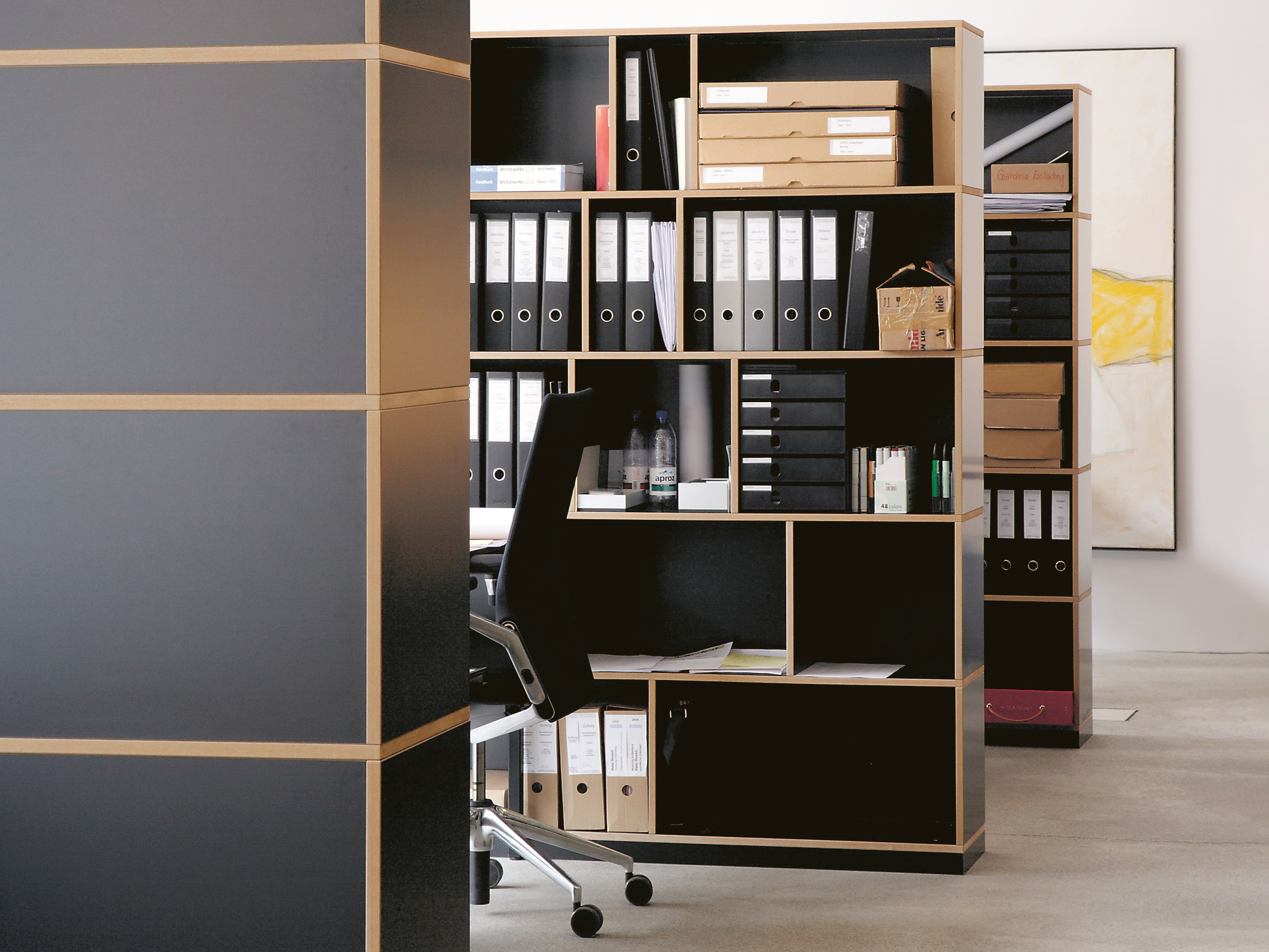
Manufacturers are increasingly putting sustainability in the spotlight. Such as Nils Holger Moormann for whom regional production and natural materials are a must.
4. Think about Waste
Responsible waste separation is of enormous importance, especially for companies. Dispose office waste professionally. Fluorescent tubes, for example, should be recycled or disposed of safely in small quantities and used batteries should be taken to a collection point instead of being disposed of in residual waste. In addition, set up a recycling waste sorting area in the office – a space where there is room and where there is no major fire hazard. Sign containers for food waste, cans, paper, plastic bottles or glass clearly. Used, undamaged furniture or functional computer accessories should not simply be disposed of in sustainable offices, but rather donated to local charitable organisations.
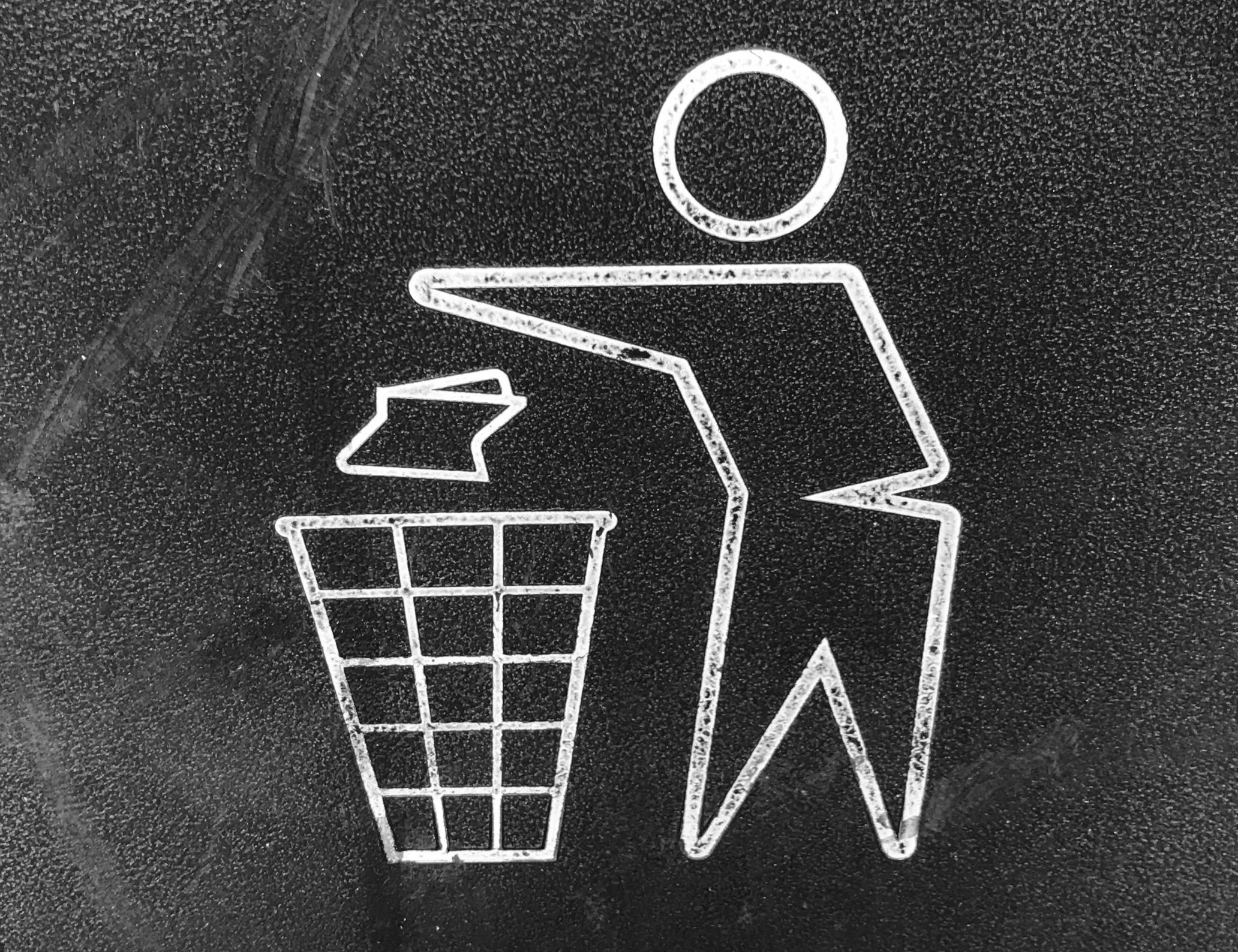
VITRA ID CHAIR CONCEPT: OVER 8000 VARIANTS - 1 SUSTAINABILITY STANDARD
ECOLOGICAL INORMATION
Vitra ID Chair Concept in Detail
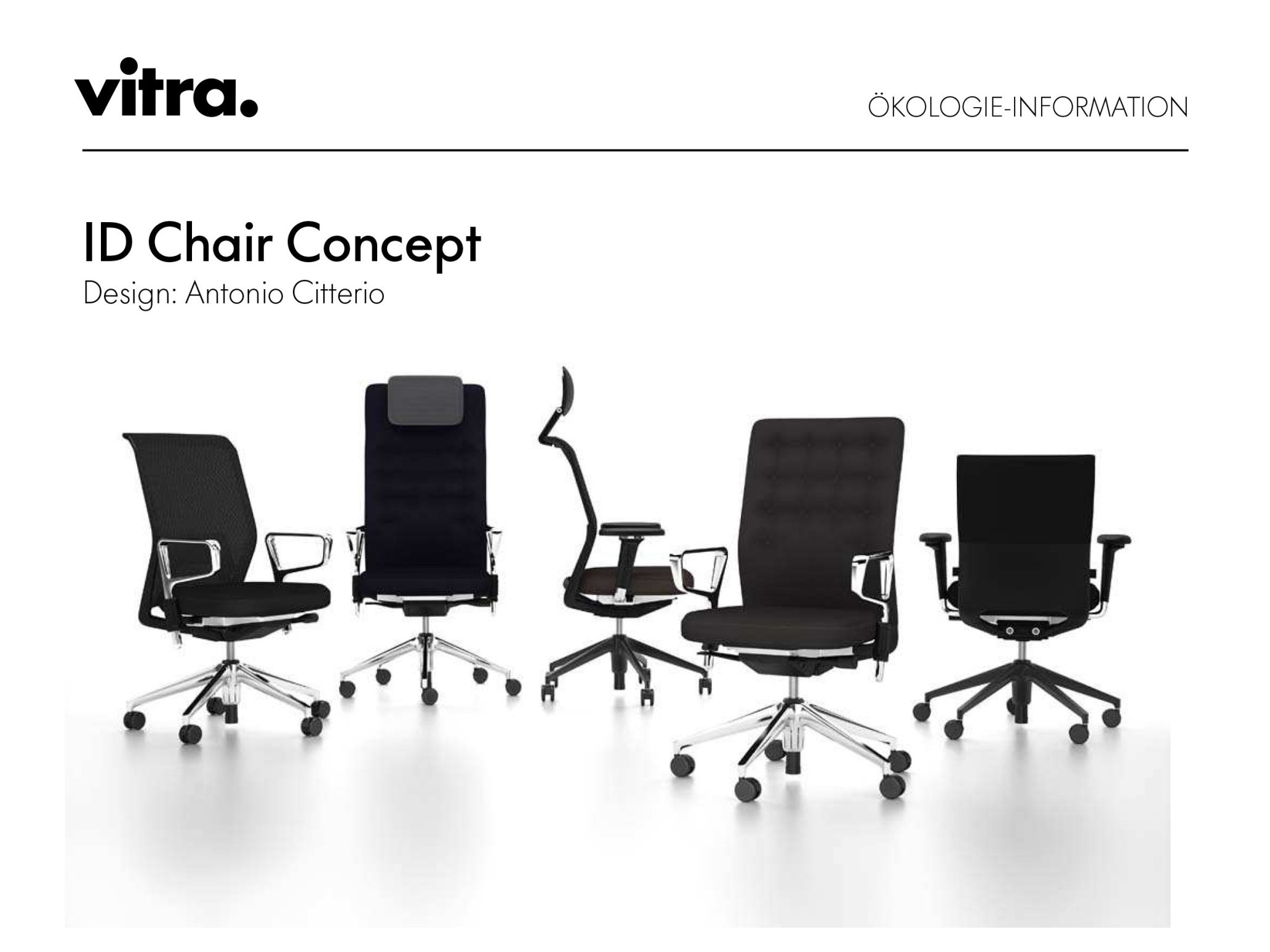
THE ID CHAIR CONCEPT FROM VITRA
Ergonomic – Sustainable – Manifold
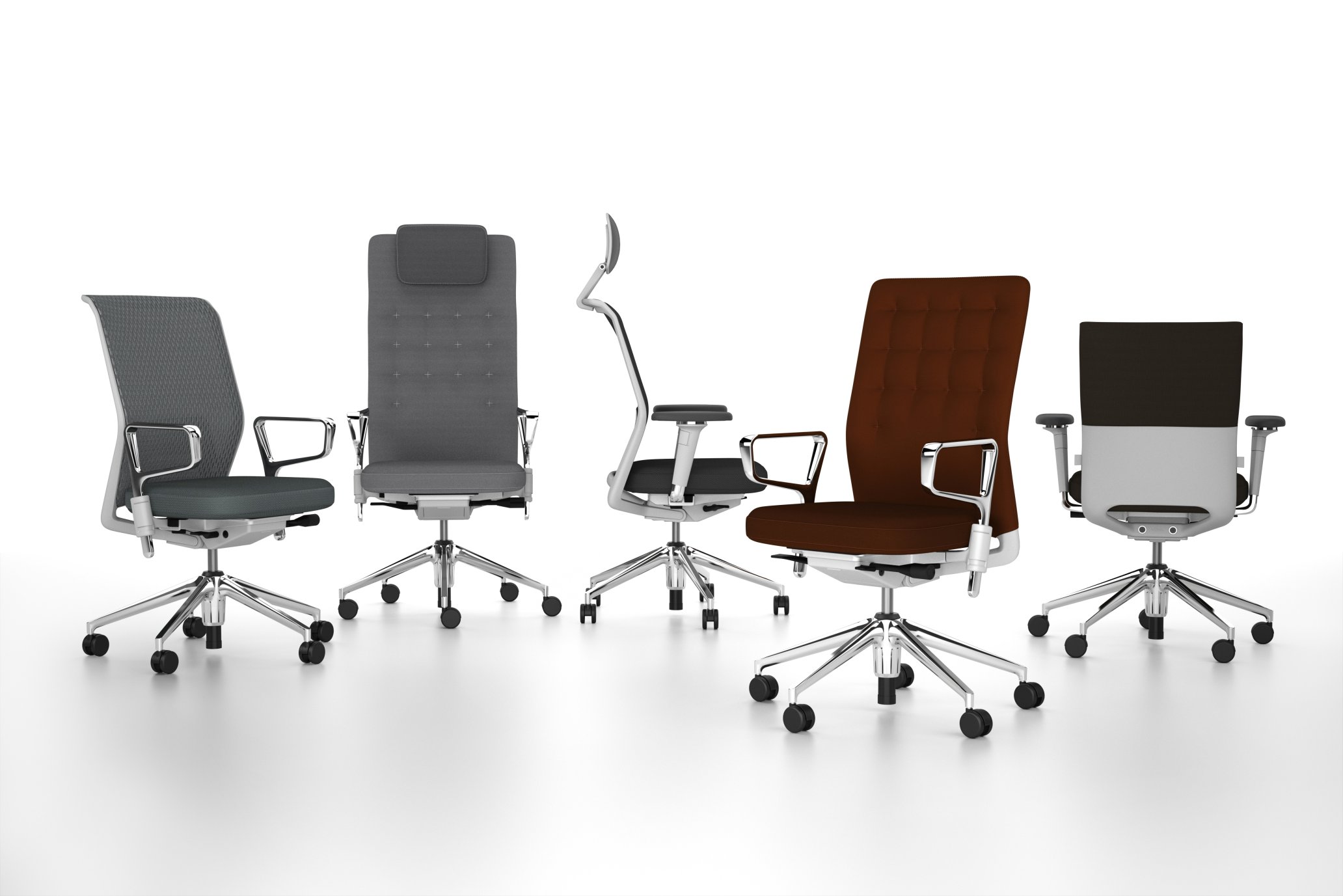
GREEN USER AGREEMENT
for the Vitra ID Chair
The long life of the ID Chair not only has a positive impact on the environment, but is also of economic benefit to the customer. This is why Vitra goes beyond the legally mandated warranty to offer its project customers the Green User Agreement. Thanks to this sustainable service agreement, companies are able to calculate the total cost of ownership for the entire lifespan of the product - i.e. all costs associated with usage as well as the purchase price.
Year 1
The customer pledges to use and maintain the product in a proper manner. In return, Vitra agrees to replace ID Chairs free of charge in the case of manufacturing or material defects and to exchange worn parts.
Year 5
Five years after signing the Green User Agreement, a service check is performed on the ID Chairs at the customer’s premises. This extends the agreement for another five years.
Year 10
The next service check is conducted. The Green User Agreement is extended by another five years.
Year 15
ID Chairs can now be returned to Vitra for professional recycling.
Year 1
The customer pledges to use and maintain the product in a proper manner. In return, Vitra agrees to replace ID Chairs free of charge in the case of manufacturing or material defects and to exchange worn parts.
Year 5
Five years after signing the Green User Agreement, a service check is performed on the ID Chairs at the customer’s premises. This extends the agreement for another five years.
Year 10
The next service check is conducted. The Green User Agreement is extended by another five years.
Year 15
ID Chairs can now be returned to Vitra for professional recycling.
5. Sustainable Production
Investigate if your office products are sustainably produced, transported, and sold. Electrical appliances are a particularly relevant category: when purchasing new electronics pay attention to the energy usage information and, if possible, use multifunctional devices. In terms of packaging, green-minded businesses should completely eliminate polystyrene and use biodegradable, non-toxic packaging material instead. In addition, the purchase of regional products reduces transport distances and thus CO2 emissions.
6. Environmentally Friendly Mobility
Encourage your employees to reduce their carbon footprint on their way to work through practices such as carpooling, car sharing, public transport, or cycling: for example, you can help bicycling employees by providing shower facilities and secure bicycle parking. In addition, business trips should, if possible, be replaced by telephone or video conferences, and rail and bus travel should, where possible, be used instead of cars or planes.

7. Green through Greenery
Plants in the office not only create a friendlier ambiance, they also improve the air quality and regulate humidity. Optimal for offices is a humidity of 40 – 60 %, which can be easily measured with a hygrometer. Some plants provide extra moisture, such as fern and ficus.
